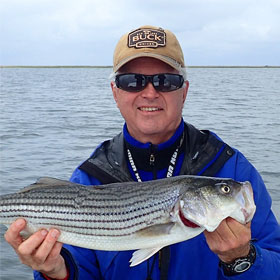Get Certified By Taking an In-Person or Online Boating Course
By Ken Schultz
Mar 05, 2020
It doesn’t matter whether you take an in-person or online boating course. Either will get you the necessary certificate, so here’s what to consider about both
Completing a boating safety course, sometimes referred to as a boat license exam, is a prerequisite in many states for operating a motorized vessel. A test is given at the end of the course. When you pass it, you receive a certificate, which many people call a “boating license,” though technically it’s not a license like you get to drive an automobile. The certificate allows you to operate a boat.
You may need to provide this certificate to a law enforcement officer, especially from the U. S. Coast Guard, or provide it to a state agency in order to register a boat. If the course was NASBLA approved – sanctioned by the National Association of State Boating Law Administrators and recognized by the Coast Guard – it’s good for life and qualifies you to operate a motorized boat elsewhere, even if you move to another state.
If you’re not required to take a boating safety course, it’s still a good idea to do so, especially if you’ve recently moved to a new area, will be boating on unfamiliar or new-to-you waterways (saltwater bays and inlets, for example, instead of freshwater lakes), or are getting back into boating after a long absence. Furthermore, it’s something that you can do as a family, as a refresher perhaps for adults and a primer for youth. The course brings you up-to-date on boating safety, navigation, boat-operation protocol, local laws, and related issues.
Online vs In-Person
You can take an online boating course, or take the course in person at a local venue. The first thing to do, however, is find out what’s required to operate a motorboat in the state where you live. Some states only require youthful operators to take the course. Next, see what your state accepts as a valid course, which is generally a NASBLA-approved one. Even if that’s not required, it’s a good idea to take such a course anyway, for the reasons previously noted. Your state agency can direct you to approved online and in-person courses.
An online boating course is especially good for those who have limited free time, who live far from the nearest in-person course, who need to get certified immediately and can’t wait for an in-person course at some later date, and who can’t make the in-person course on the date or dates when it is available locally. Furthermore, because you can take an online boating course on your time, you can do it in stages, at night, or whenever you have free time. Just make sure that you do it at a time and place where you have a good internet connection, because it takes several hours to complete the course before the exam.
In-person boat safety courses are offered several times a year in many places by local U. S. Coast Guard Auxiliary chapters, as well as by some large outdoor-supply retailers. They follow two regimens: an approximately six-hour course given on a single sitting, usually on a weekend day, or a two-session course given over (usually) consecutive evenings, with each session lasting about three to four hours. Both are followed by an exam. I recommend taking a course that can be completed in one sitting, especially if you have to travel any distance to get to where the course is offered.
With an in-person course, the administrator may tailor some of the content to address local or regional navigational situations and peculiarities, which doesn’t happen with a more generic online course. You may also learn something of value from fellow participants at an in-person course.
With your certificate in hand – as well as a fishing license if you’ll be doing some angling – you’re ready to hop in the boat and fire the engine up.









